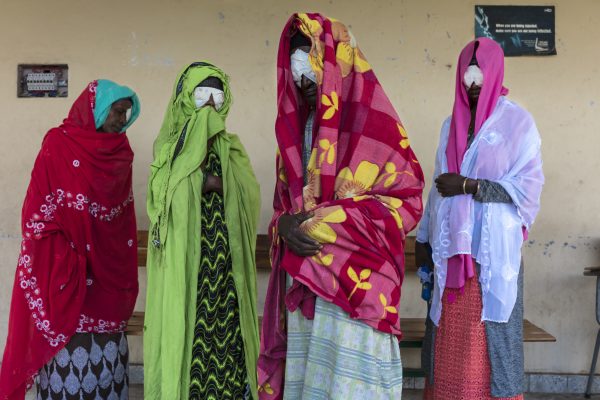Case Study: Task Force for Global Health

Photo Credit: Brent Stirton/Getty Images for the International Trachoma Initiative
Background
In 2014, the Fund approved a five-year grant of $610,304 to Task Force for Global Health (Task Force) to work with the Ethiopian NGO Grarbet Tehadis Mahber (GTM) towards eliminating blinding trachoma in four woredas (health districts) in Ethiopia’s Oromia Region, the world’s epicenter of the trachoma public-health crisis, containing close to one-third of the global burden. Task Force is an independent, 501(c)3, nongovernmental organization that focuses on eliminating diseases and protecting populations. The organization would guide the project by its S.A.F.E acronym objectives – surgery to correct trichiasis, antibiotics to treat active infection, face and hand washing to reduce disease transmission, and environmental change to improve sanitation to ultimately eliminate the trachoma bacteria – which all function as integral ingredients in interrupting trachoma infection and sustaining trachoma control and elimination.
Results
By grant’s end, Task Force had achieved 99 percent of its leading trachoma-control goal: the mass distribution of the antibiotic Zithromax. Furthermore, the project exceeded its objectives surrounding the number of performed surgeries for advanced trachoma and the amount of people treated via tetracyline (an alternative to Zithromax for those ineligible). The project encountered a number of obstacles on important but challenging goals of changing entrenched habits in personal hygiene and sanitation. However, overall, the actions taken by the Task Force have accomplished significant progress in developing an encouraging worldwide trend towards greater trachoma control.

